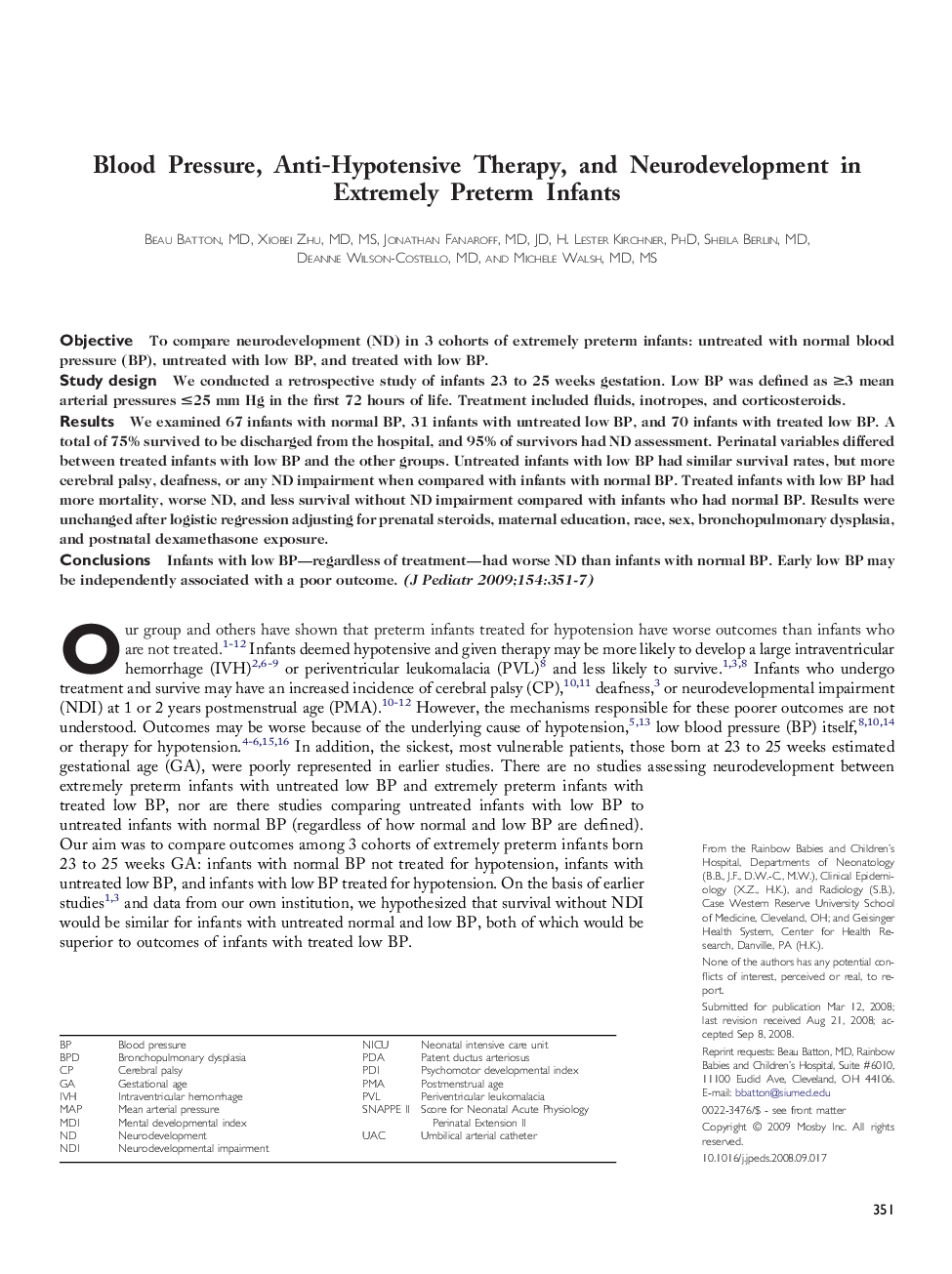| Article ID | Journal | Published Year | Pages | File Type |
|---|---|---|---|---|
| 6225713 | The Journal of Pediatrics | 2009 | 8 Pages |
ObjectiveTo compare neurodevelopment (ND) in 3 cohorts of extremely preterm infants: untreated with normal blood pressure (BP), untreated with low BP, and treated with low BP.Study designWe conducted a retrospective study of infants 23 to 25 weeks gestation. Low BP was defined as â¥3 mean arterial pressures â¤25 mm Hg in the first 72 hours of life. Treatment included fluids, inotropes, and corticosteroids.ResultsWe examined 67 infants with normal BP, 31 infants with untreated low BP, and 70 infants with treated low BP. A total of 75% survived to be discharged from the hospital, and 95% of survivors had ND assessment. Perinatal variables differed between treated infants with low BP and the other groups. Untreated infants with low BP had similar survival rates, but more cerebral palsy, deafness, or any ND impairment when compared with infants with normal BP. Treated infants with low BP had more mortality, worse ND, and less survival without ND impairment compared with infants who had normal BP. Results were unchanged after logistic regression adjusting for prenatal steroids, maternal education, race, sex, bronchopulmonary dysplasia, and postnatal dexamethasone exposure.ConclusionsInfants with low BP-regardless of treatment-had worse ND than infants with normal BP. Early low BP may be independently associated with a poor outcome.
